
Budva Riviera: Montenegro's Coastal Gem
Nestled along the Adriatic Sea, the Budva Riviera is a stunning stretch of coastline in Montenegro. Known for its beautiful beaches, vibrant nightlife, and rich history, it is a perfect destination for both relaxation and adventure. The Riviera is home to the ancient town of Budva, which dates back over 2,500 years, making it one of the oldest settlements on the Adriatic coast. The old town is a maze of narrow streets, historic buildings, and charming squares, all enclosed by medieval stone walls. Beyond the historical allure, the Budva Riviera offers some of the finest beaches in Montenegro. From the bustling Mogren Beach to the serene Jaz Beach, there is a spot for everyone. The crystal-clear waters and pebbled shores are ideal for sunbathing, swimming, and water sports. If you venture a bit further, you will find hidden coves and secluded bays, perfect for a more private experience. The nightlife in Budva is legendary. The city comes alive after sunset with a plethora of bars, clubs, and restaurants. Whether you want to dance the night away at a beach club or enjoy a quiet dinner with a view, the Budva Riviera has something to offer. Additionally, the Riviera hosts numerous cultural events and festivals throughout the year, adding to its vibrant atmosphere. For those interested in nature and outdoor activities, the Budva Riviera does not disappoint. Hiking trails with breathtaking views, boat tours to nearby islands, and diving excursions are just a few of the activities available. The blend of natural beauty, historical significance, and modern amenities makes the Budva Riviera a must-visit destination.
Local tips in Budva Riviera
- Visit early in the morning to avoid crowds, especially at popular beaches.
- Wear comfortable shoes for exploring the old town's narrow, cobblestone streets.
- Sample local seafood at one of the many seaside restaurants.
- Take a boat trip to the nearby Sveti Nikola Island for a unique experience.
- Check the local event calendar for festivals and cultural events during your stay.
Budva Riviera: Montenegro's Coastal Gem
Nestled along the Adriatic Sea, the Budva Riviera is a stunning stretch of coastline in Montenegro. Known for its beautiful beaches, vibrant nightlife, and rich history, it is a perfect destination for both relaxation and adventure. The Riviera is home to the ancient town of Budva, which dates back over 2,500 years, making it one of the oldest settlements on the Adriatic coast. The old town is a maze of narrow streets, historic buildings, and charming squares, all enclosed by medieval stone walls. Beyond the historical allure, the Budva Riviera offers some of the finest beaches in Montenegro. From the bustling Mogren Beach to the serene Jaz Beach, there is a spot for everyone. The crystal-clear waters and pebbled shores are ideal for sunbathing, swimming, and water sports. If you venture a bit further, you will find hidden coves and secluded bays, perfect for a more private experience. The nightlife in Budva is legendary. The city comes alive after sunset with a plethora of bars, clubs, and restaurants. Whether you want to dance the night away at a beach club or enjoy a quiet dinner with a view, the Budva Riviera has something to offer. Additionally, the Riviera hosts numerous cultural events and festivals throughout the year, adding to its vibrant atmosphere. For those interested in nature and outdoor activities, the Budva Riviera does not disappoint. Hiking trails with breathtaking views, boat tours to nearby islands, and diving excursions are just a few of the activities available. The blend of natural beauty, historical significance, and modern amenities makes the Budva Riviera a must-visit destination.
When is the best time to go to Budva Riviera?
Iconic landmarks you can’t miss
Iberostar Bellevue
Discover luxury and relaxation at Iberostar Bellevue, a stunning resort hotel in Budva, Montenegro, featuring a serene spa and breathtaking Adriatic views.

Jaz Beach
Discover Jaz Beach, a stunning Montenegrin paradise with golden sands and crystal-clear waters, perfect for relaxation and adventure.
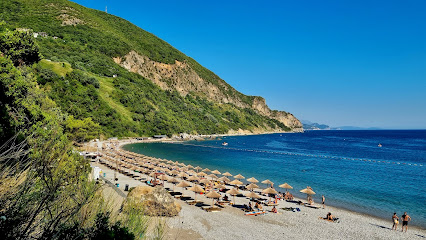
Ploce beach
Discover the natural beauty of Ploce Beach in Krimovica, Montenegro, where pristine sands meet azure waters for a perfect beach getaway.
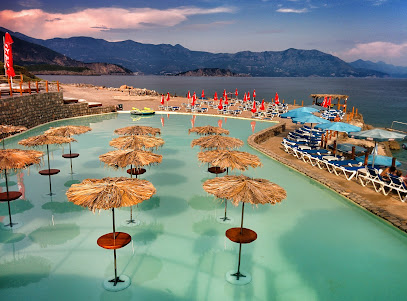
Budva Citadel
Discover the rich history and breathtaking views of Budva Citadel, a stunning fortress along Montenegro's Adriatic coast.
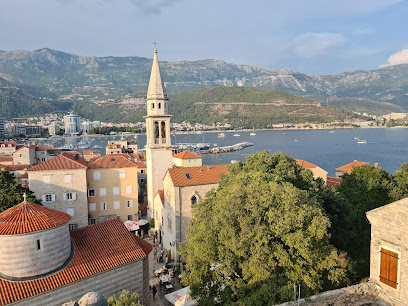
Mogren 2 Beach
Experience the beauty of Mogren 2 Beach in Budva, Montenegro - a perfect blend of relaxation, adventure, and stunning vistas along the Adriatic coast.
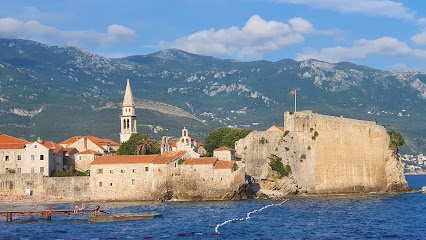
Beach Greco
Discover the beauty of Beach Greco, a stunning beach in Budva, Montenegro, known for its vibrant atmosphere and crystal-clear waters.
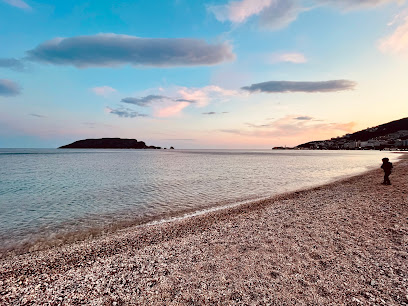
Mogren beach
Discover the stunning beauty and vibrant atmosphere of Mogren Beach, one of Montenegro's most cherished coastal gems, perfect for relaxation and adventure.
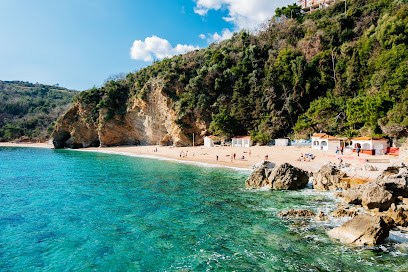
The Church of Sveti Ivan (St. John)
Discover the architectural elegance and spiritual tranquility of the Church of Sveti Ivan in Budva, a must-visit destination in Montenegro's coastal charm.
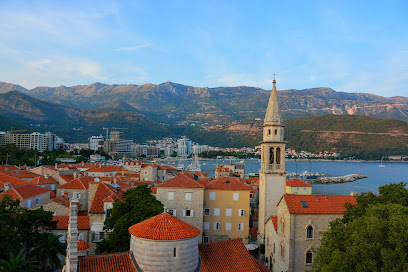
Kamenovo beach
Kamenovo Beach – A picturesque escape with golden sands and turquoise waters, perfect for relaxation and adventure in Montenegro.
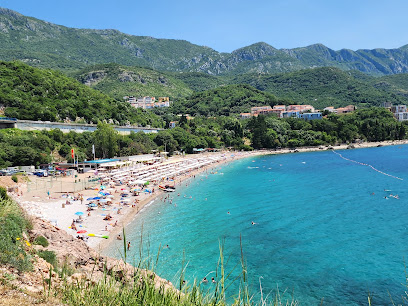
Sveti Stefan Beach
Discover the beauty of Sveti Stefan Beach, a stunning destination on Montenegro's Adriatic coast, known for its crystal-clear waters and historic charm.
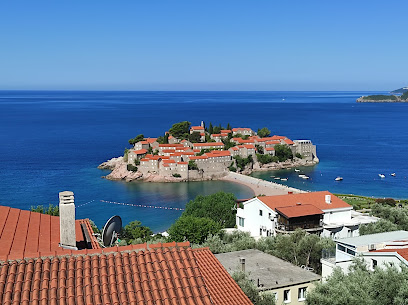
Plaža Ričardova Glava
Discover the enchanting beauty of Plaža Ričardova Glava, a premier beach destination in Budva, Montenegro, where relaxation meets adventure.
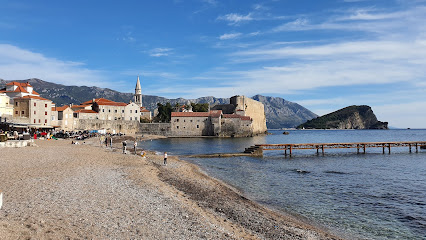
Perazica Do beach
Experience the idyllic charm of Perazica Do Beach, a serene coastal paradise in Montenegro perfect for relaxation and natural beauty.
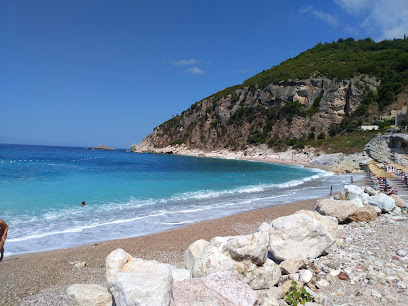
Fort Mogren
Discover the enchanting Fort Mogren in Budva, Montenegro—a breathtaking fortress offering stunning views and rich history.
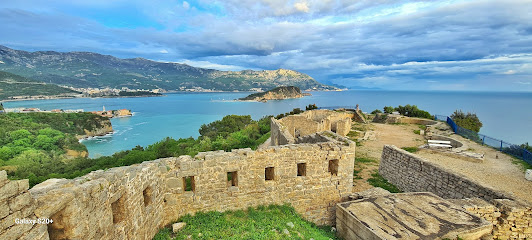
Drobni Pijesak beach
Discover the serene beauty of Drobni Pijesak Beach, a picturesque retreat on Montenegro's stunning coastline, perfect for relaxation and adventure.
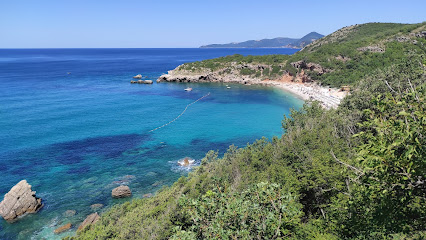
Iberostar Slavija
Experience the luxurious Iberostar Slavija in Budva, Montenegro, where modern elegance meets breathtaking Adriatic views for an unforgettable getaway.
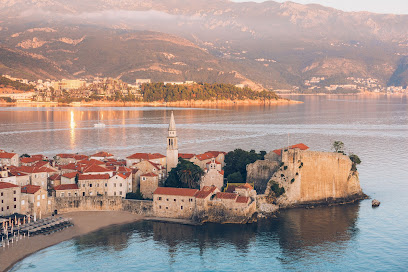
Unmissable attractions to see
Port of Kotor
Discover the breathtaking beauty and rich history of the Port of Kotor, Montenegro's stunning gateway to the Adriatic Sea.
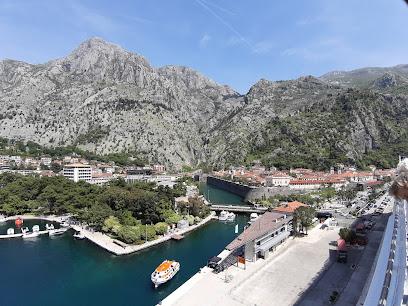
Podmaine Monastery
Discover the tranquil beauty and rich history of Podmaine Monastery, a serene retreat nestled in the hills of Budva, Montenegro.
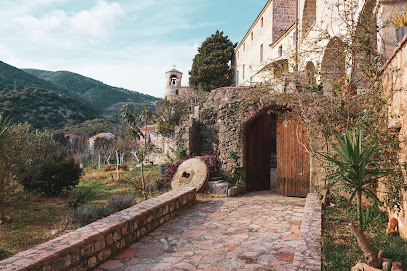
Bajova Kula
Experience the finest seafood and breathtaking views at Bajova Kula in Dražin Vrt, Montenegro. A culinary delight on the Adriatic coast.
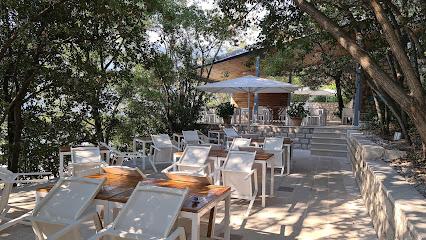
Budva Dancing girl
Discover the beauty and cultural significance of the Budva Dancing Girl, a captivating symbol of Montenegro's vibrant coastal charm.
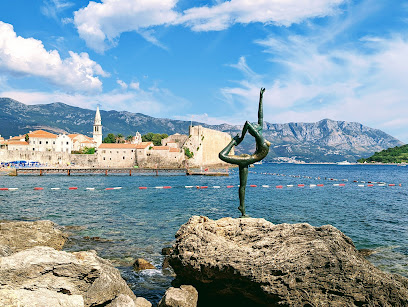
Kojan Koral
Discover thrilling outdoor adventures at Kojan Koral in Gruda, Croatia, offering ATV rentals, horseback riding, and unforgettable experiences in nature.
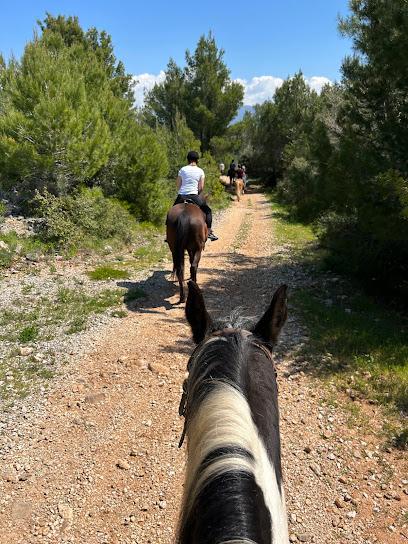
Ancient Doclea Ruins
Discover the Ancient Doclea Ruins in Podgorica, a historical landmark showcasing the remnants of a Roman city amidst stunning natural beauty.
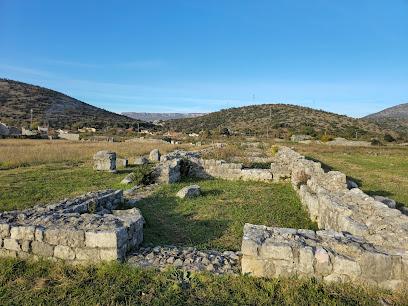
Museum of the City of Budva
Discover the rich history and culture of Budva at the Museum of the City of Budva, where the past comes alive through captivating exhibits and artifacts.
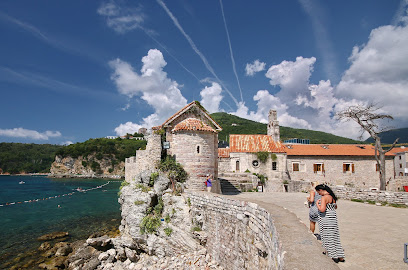
Mrkan Winery
Experience the authentic flavors of Montenegro at Mrkan Winery, where tradition meets breathtaking views and exceptional wines.
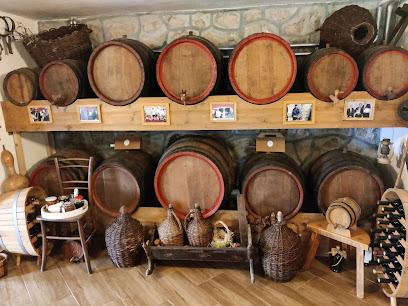
Njegoševa Rodna Kuća
Explore Njegoševa Rodna Kuća, the birthplace of Montenegro's literary giant, and uncover the rich cultural heritage of this enchanting country.
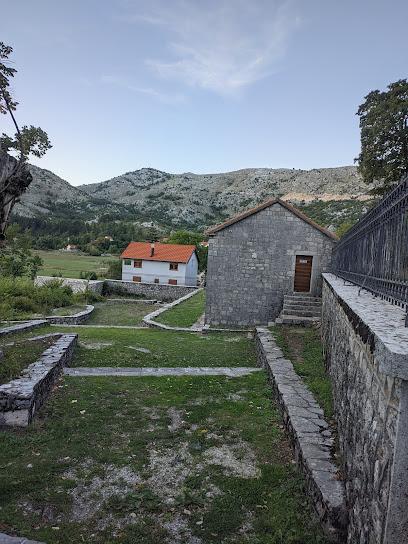
Vrmac
Discover the breathtaking views and lush trails of Vrmac Peak in Gornja Lastva, a must-visit destination for nature lovers in Montenegro.
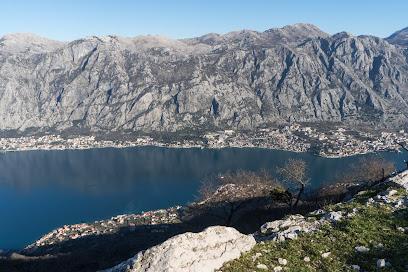
Church and Monastery of Our Lady of Mercy
Discover the spiritual essence of Montenegro at the Church and Monastery of Our Lady of Mercy, a serene island retreat rich in history and breathtaking views.
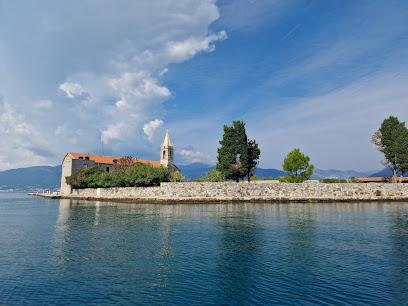
Gallery of Museum of Contemporary Art of Montenegro
Explore contemporary artistic expressions at the Gallery of Museum of Contemporary Art in Podgorica, Montenegro, a must-visit for art enthusiasts.
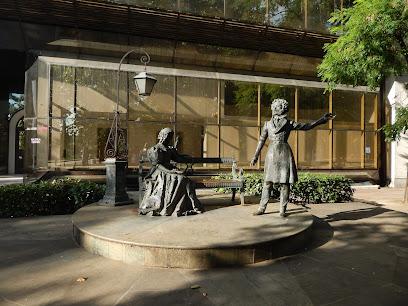
La Musorka
Discover La Musorka, a captivating tourist attraction in Budva, Montenegro, offering a blend of stunning architecture and rich cultural heritage.
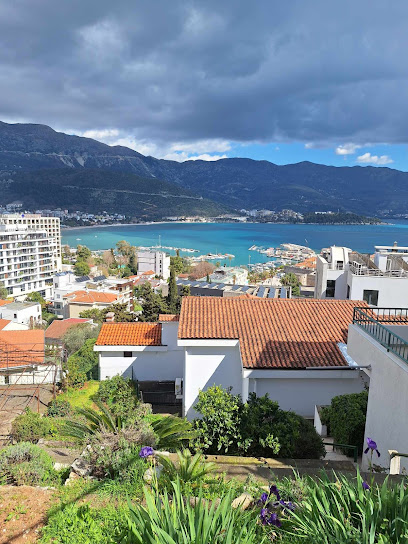
Tourist attraction - Great view
Experience the stunning beauty of Montenegro at Great View - a breathtaking tourist attraction offering panoramic landscapes and serene nature.
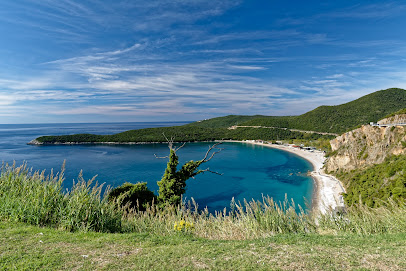
Skurda Canyon
Explore the breathtaking Skurda Canyon in Montenegro, a paradise for adventure seekers and nature lovers alike, featuring stunning landscapes and thrilling activities.
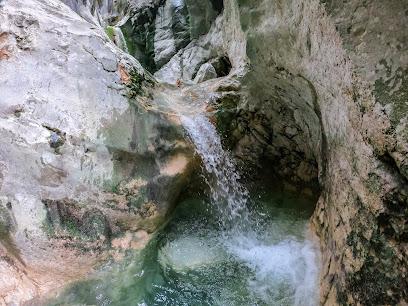
Essential places to dine
Tropico
Discover Tropico in Budva: where Mediterranean flavors meet stunning Adriatic views for an unforgettable dining experience.
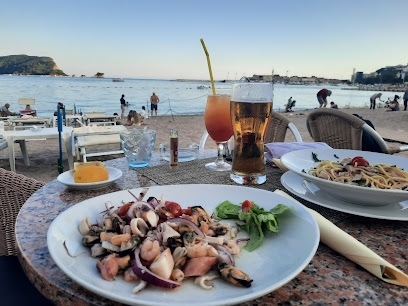
Obala
Savor exquisite Mediterranean cuisine at Obala in Budva while enjoying stunning views of the Adriatic Sea.
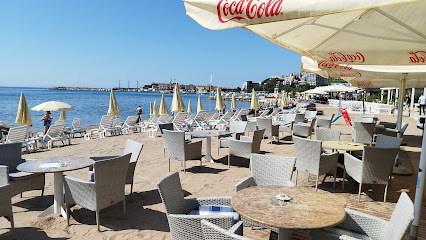
Zeleni Gaj
Savor authentic Montenegrin flavors at Zeleni Gaj in Budva – where delicious cuisine meets stunning coastal views.
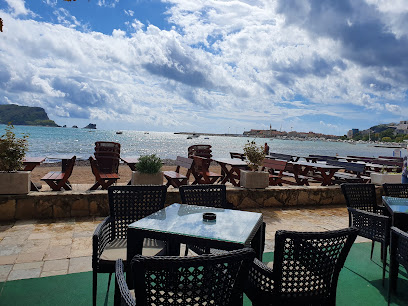
Babaluu Bar & Ristorante
Experience the flavors of the Mediterranean at Babaluu Bar & Ristorante in Budva - where delicious food meets stunning sea views.
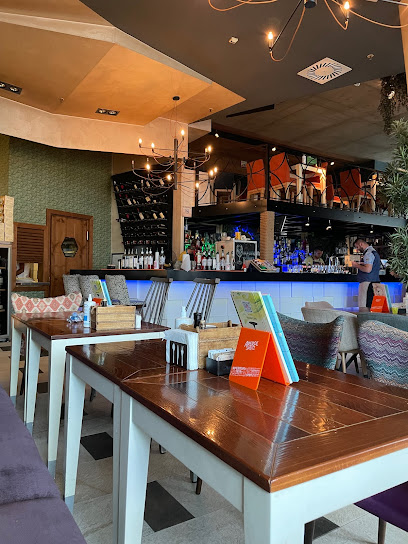
Lim Restaurant
Discover the flavors of Montenegro at Lim Restaurant on Slovenska beach, where fresh seafood meets breathtaking coastal views.
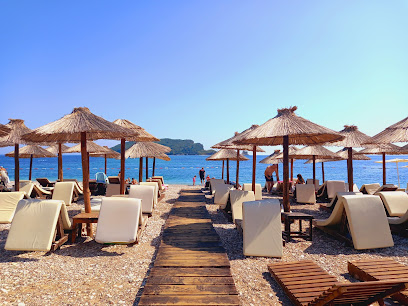
Restoran Kralj
Experience authentic Montenegrin cuisine at Restoran Kralj in Budva, where delicious food meets stunning Adriatic views.
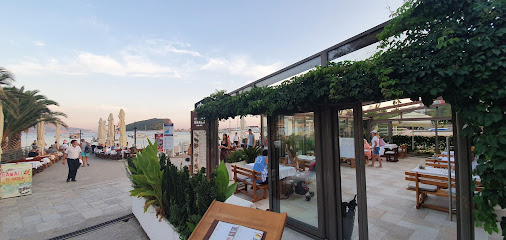
Eatzy - Grill & Casual Food Restaurant
Discover the taste of America with a Montenegrin twist at Eatzy - Grill & Casual Food Restaurant in Budva.
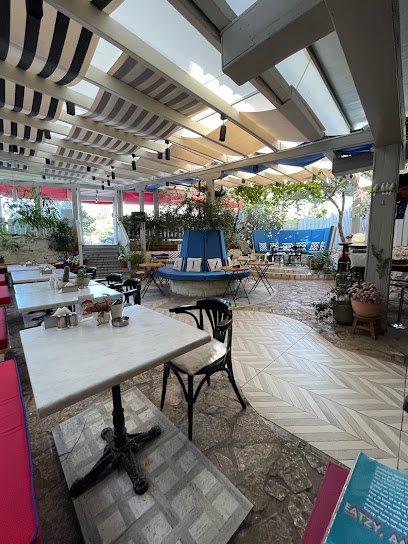
L&M
Experience authentic Montenegrin flavors at L&M in Budva – where culinary tradition meets modern dining.
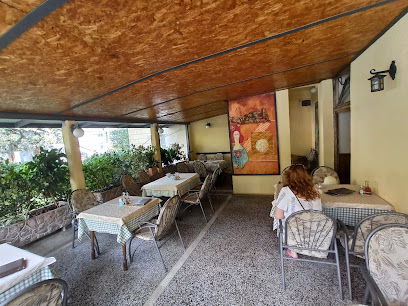
Dukley Seafront Restaurant
Experience exquisite seafood dining with breathtaking Adriatic views at Dukley Seafront Restaurant in Montenegro.
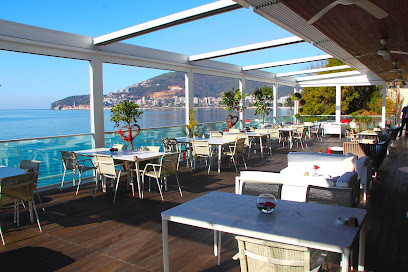
M-Irena
Discover the flavors of Montenegro at M-Irena in Budva—where tradition meets contemporary cuisine in an inviting atmosphere.
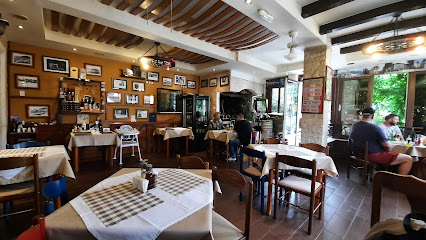
Restaurant Adriatic
Discover authentic Mediterranean cuisine at Restaurant Adriatic in Budva—where every meal is a celebration of local flavors.
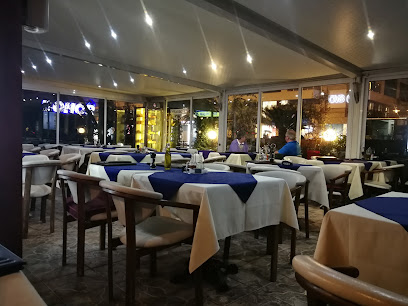
Forsage Gastro Lounge
Experience the flavors of Montenegro at Forsage Gastro Lounge - a culinary gem in Budva offering diverse dishes and a vibrant atmosphere.
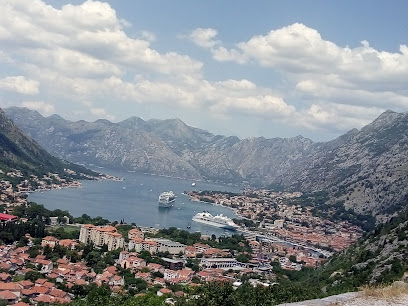
Piano Nobile
Experience culinary excellence at Piano Nobile - Budva's premier steakhouse offering exquisite dishes in an elegant setting.
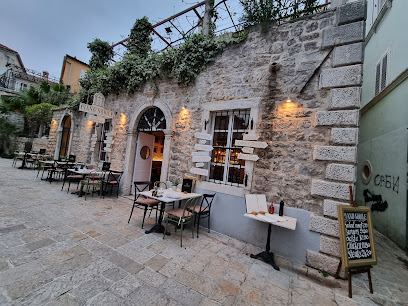
La Bocca
Experience authentic Mediterranean flavors at La Bocca in Budva—a must-visit dining destination for tourists seeking culinary delights.
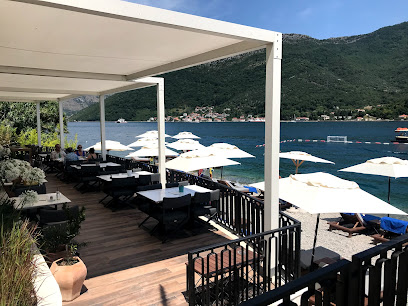
Sole Mio
Experience authentic Montenegrin cuisine with stunning sea views at Sole Mio in Budva.
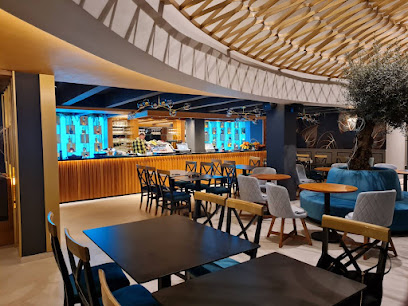
Markets, malls and hidden boutiques
TQ Plaza
Explore TQ Plaza in Budva, Montenegro: A shopping haven with diverse brands, delicious dining, and family-friendly fun.
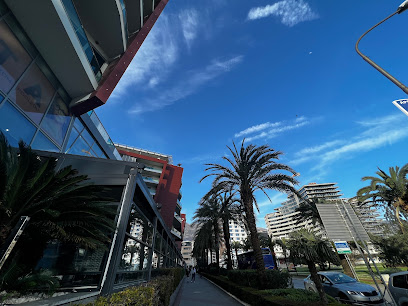
Family Hand Made gift shop BY THE SEA
Explore Family Hand Made Gift Shop BY THE SEA in Budva, Montenegro, for unique handcrafted souvenirs that embody local culture and artistry.
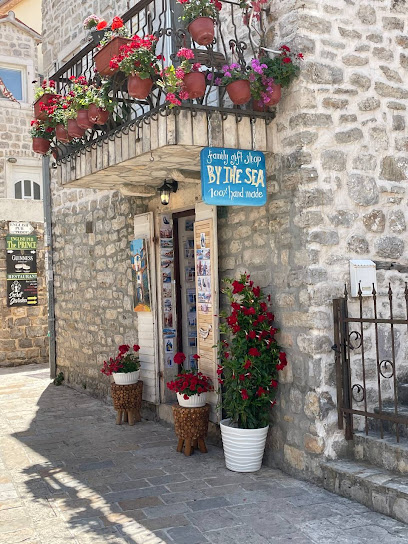
Top Shop Budva
Discover a diverse range of products at Top Shop Budva, where local treasures and fashion meet in the heart of Montenegro's vibrant shopping scene.
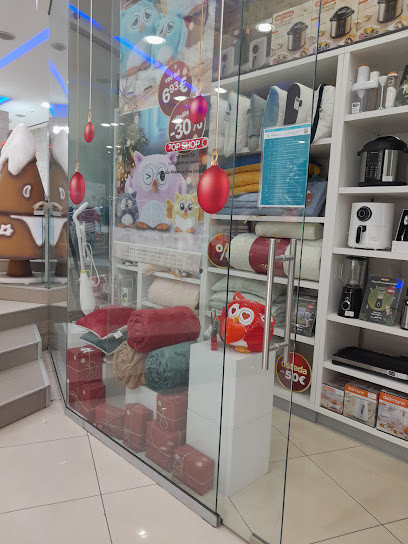
Fashion&Friends
Discover the latest in fashion at Fashion&Friends in Budva, where local style meets contemporary trends for a unique shopping experience.
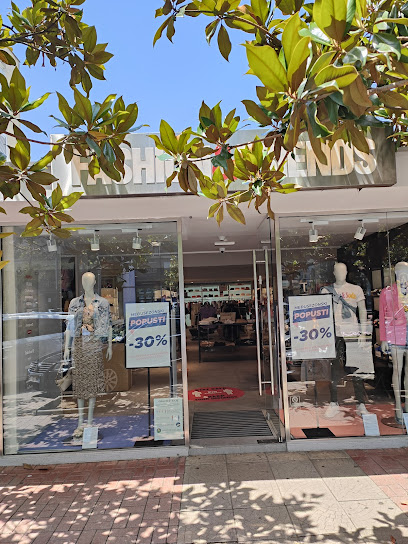
Grand Bazar
Discover the essence of Montenegrin fashion at Grand Bazar, Budva's premier clothing store offering a unique shopping experience.
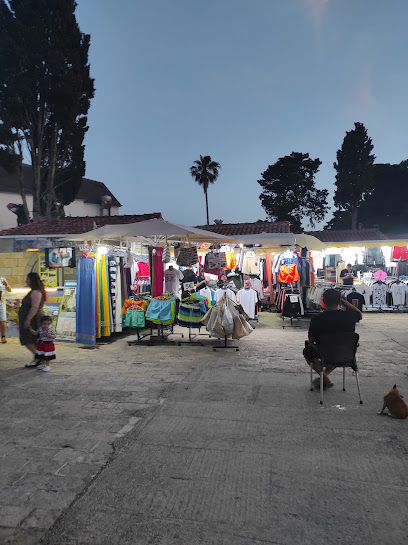
PEPITO Boutique
Discover PEPITO Boutique in Budva, Montenegro, for an exquisite range of formal wear, stylish clothing, and footwear that elevate your fashion game.
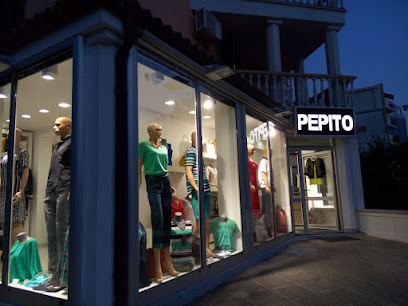
My Lovely Store M&S
Discover stylish women's clothing at My Lovely Store M&S in Budva, Montenegro - a must-visit boutique for fashion-forward travelers.
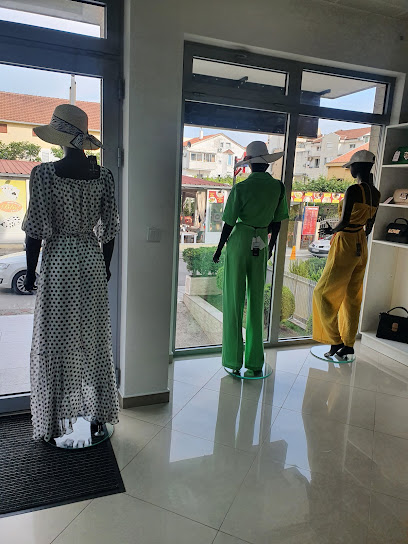
Nina's Boutique / Budva
Discover unique fashion treasures at Nina's Boutique in Budva, where style meets the vibrant culture of Montenegro.

Meraki Budva
Discover a stylish women's clothing boutique in Budva, offering unique fashion choices that reflect the vibrant culture of Montenegro.
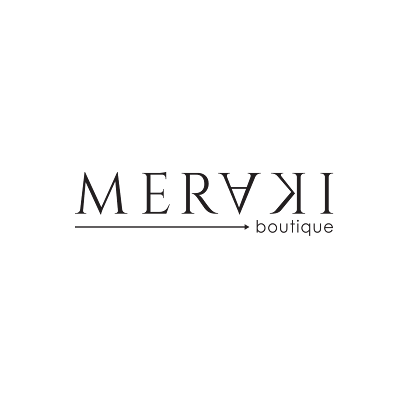
Renk Shop
Explore Renk Shop in Budva, Montenegro for unique gifts and souvenirs that celebrate the essence of this stunning coastal destination.
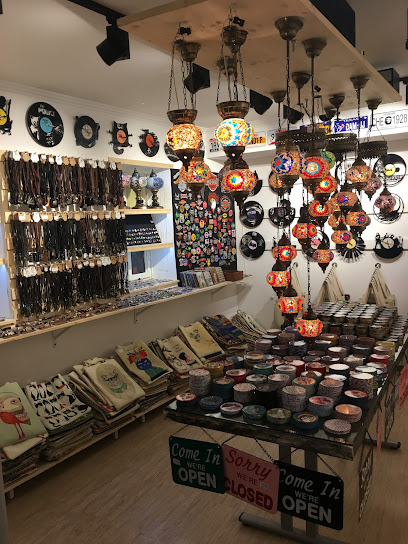
Antique Shop & Gallery
Explore the charm of Montenegro's past at Budva's Antique Shop & Gallery, where history and artistry come together for an unforgettable experience.
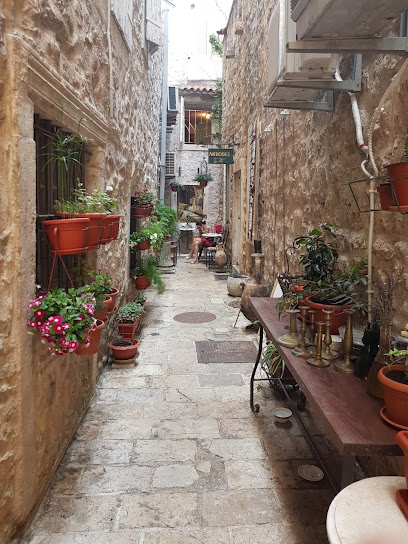
Tijana Boutique
Discover unique fashion at Tijana Boutique in Budva, Montenegro, where style meets Mediterranean charm.
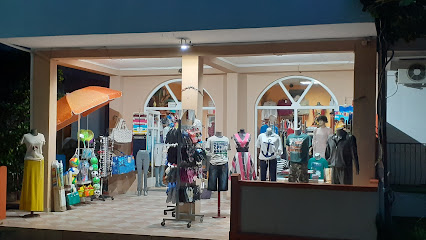
Tenero Ltd.
Explore Tenero Ltd. in Budva for unique Mediterranean treasures and an authentic shopping experience that embodies local craftsmanship and culture.
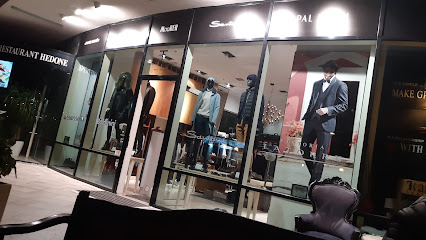
Mona Fashion - Budva
Explore chic clothing and stylish accessories at Mona Fashion in Budva, the perfect destination for fashion enthusiasts and tourists alike.
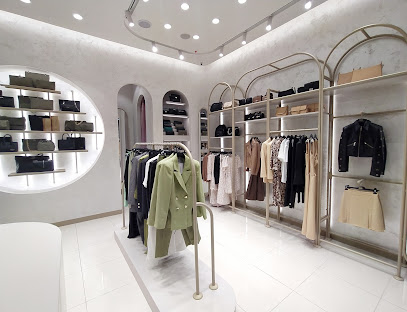
Boutique Mare
Discover the elegance of Montenegrin fashion at Boutique Mare, where unique styles meet exceptional service in Budva.
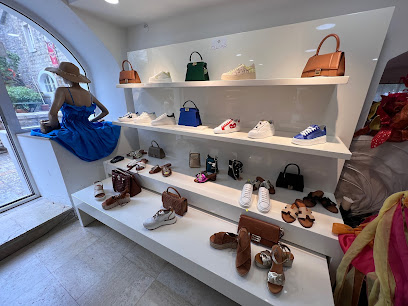
Essential bars & hidden hideouts
Old Fisherman's Pub
Discover the delightful blend of fresh seafood and stunning coastal views at Budva's Old Fisherman's Pub.
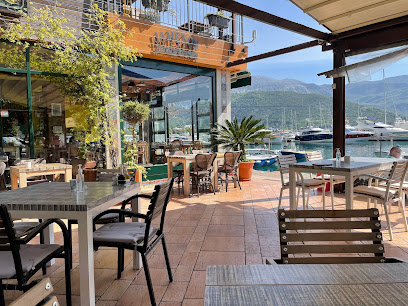
Beer & Bike Club
Experience Budva's vibrant nightlife at Beer & Bike Club, where cycling meets craft beer overlooking the stunning Adriatic coast.
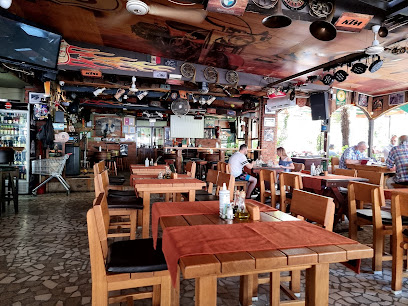
Beach Bar Time Out
Experience the vibrant atmosphere of Beach Bar Time Out in Budva, Montenegro, your go-to destination for cocktails and breathtaking Adriatic views.
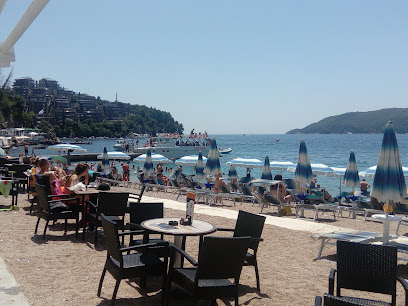
Old Town Pub Budva
Discover the lively Old Town Pub Budva, where local flavors meet a vibrant atmosphere in the heart of Montenegro's historic coastal town.
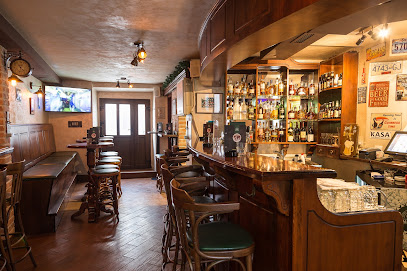
Terminal Pub - Public House
Experience the vibrant spirit of Budva at Terminal Pub, where local flavors and lively ambiance meet for an unforgettable evening.
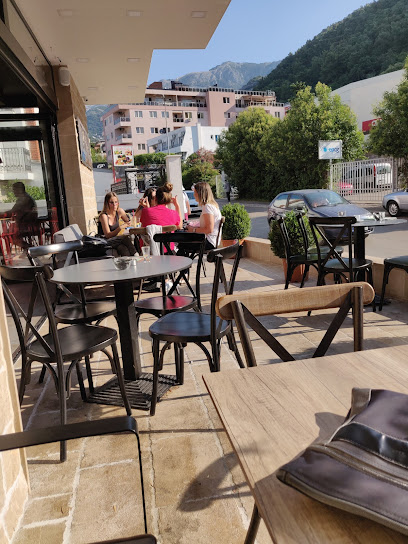
Mañana Budva
Discover the vibrant cocktail scene at Mañana Budva, where creativity meets relaxation in the heart of Montenegro's coastal paradise.
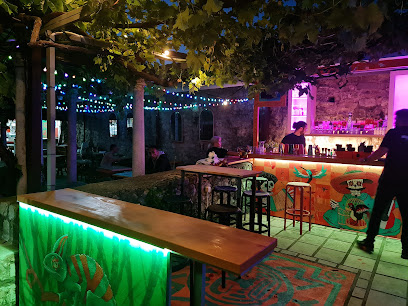
Lažni bar
Experience the vibrant atmosphere of Lažni Bar in Budva, Montenegro, where refreshing drinks and lively ambiance await.
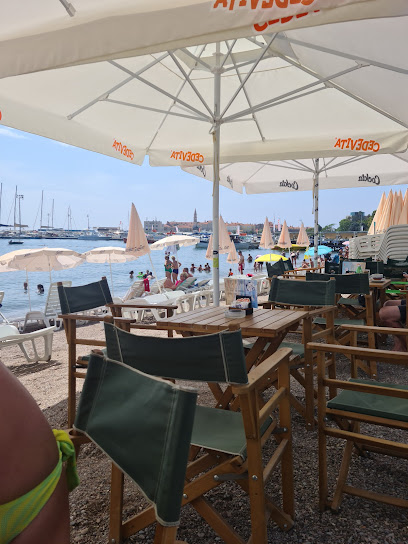
BURA PUB craft & smash
Discover BURA PUB in Budva - a trendy gastropub offering innovative cuisine and craft beverages in a lively atmosphere.
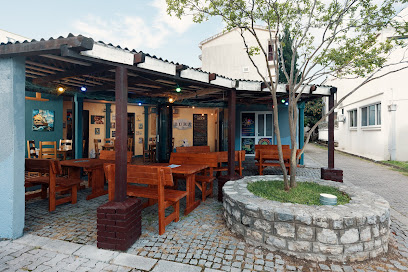
Jeff Bar
Discover the vibrant atmosphere and refreshing drinks at Jeff Bar in Budva, the perfect spot for relaxation and socializing.
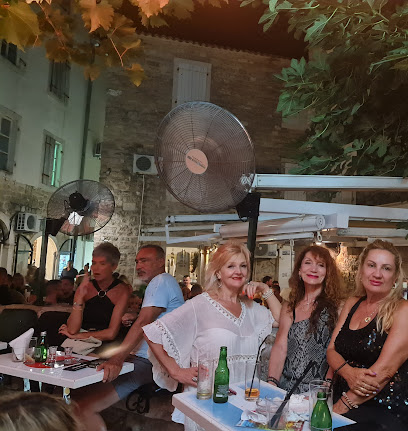
San Trope
Experience the vibrant atmosphere and stunning sea views at San Trope, Budva's premier bar destination for tourists seeking relaxation and local flavor.
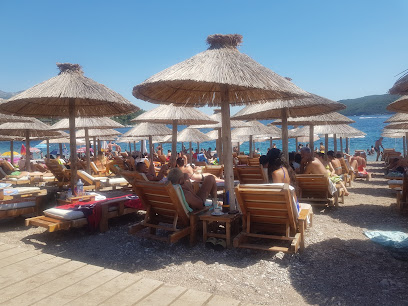
The Prince English Pub
Discover The Prince English Pub in Budva, where traditional English charm meets Montenegrin hospitality in a lively atmosphere.
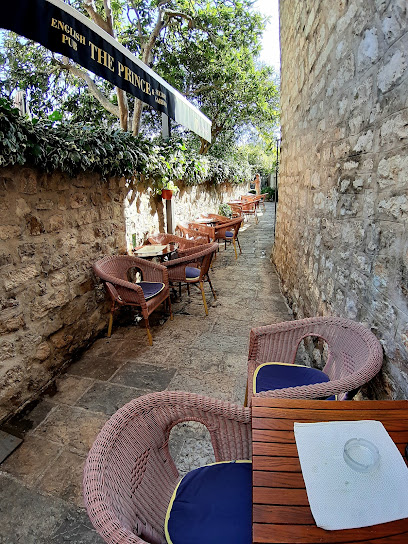
Kuća Pub & Restaurant
Experience the vibrant culinary scene at Kuća Pub & Restaurant, where fresh oysters and gourmet dishes meet a lively atmosphere in Budva's historic Old Town.
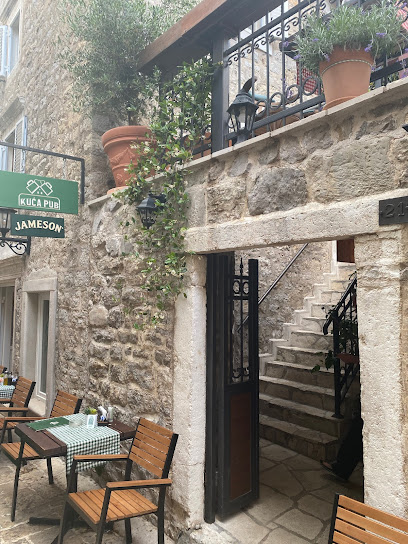
Dukley Beach & Bar
Experience the charm of Dukley Beach & Bar—where stunning sea views meet exquisite cuisine in Budva, Montenegro.
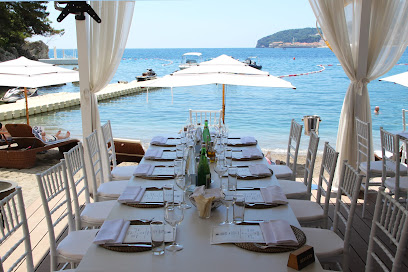
Rakija & Wine Bar
Discover the essence of Montenegro at Rakija & Wine Bar, where local wines and traditional rakija create an unforgettable experience in Budva.
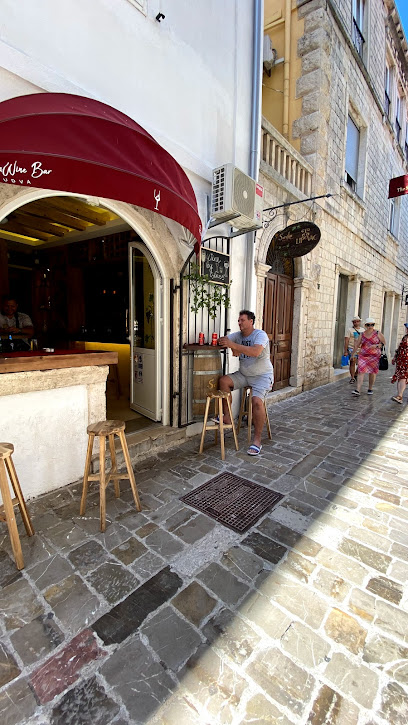
Local Phrases about Budva Riviera
-
- HelloZdravo
[Zdrah-voh] - GoodbyeDoviđenja
[Doh-vee-jen-ya] - YesDa
[Dah] - NoNe
[Neh] - Please/You're welcomeMolim
[Moh-leem] - Thank youHvala
[Hvah-lah] - Excuse me/SorryIzvinite
[Eez-vee-nee-teh] - How are you?Kako si?
[Kah-koh see?] - Fine. And you?Dobro. A ti?
[Doh-bro. Ah tee?] - Do you speak English?Govorite li engleski?
[Goh-voh-ree-teh lee ehn-gleh-skee?] - I don't understandNe razumijem
[Neh rah-zoo-mee-yem]
- HelloZdravo
-
- I'd like to see the menu, pleaseMolio bih meni, molim
[Moh-lee-oh bee meh-nee, moh-leem] - I don't eat meatNe jedem meso
[Neh yeh-dem meh-so] - Cheers!Živeli!
[Zhee-veh-lee] - I would like to pay, pleaseHteo bih da platim, molim
[Htay-oh bee dah plah-teem, moh-leem]
- I'd like to see the menu, pleaseMolio bih meni, molim
-
- Help!Pomoć!
[Poh-mohtch!] - Go away!Idi odavde!
[Ee-dee oh-dahv-deh!] - Call the Police!Pozovite policiju!
[Poh-zoh-vee-teh poh-lee-tsee-yoo!] - Call a doctor!Pozovite doktora!
[Poh-zoh-vee-teh dohk-toh-rah!] - I'm lostIzgubio sam se
[Eez-goo-byoh sahm seh] - I'm illBolestan sam
[Boh-leh-stahn sahm]
- Help!Pomoć!
-
- I'd like to buy...Hteo bih da kupim...
[Htay-oh bee dah koo-peem...] - I'm just lookingSamo gledam
[Sah-moh gleh-dahm] - How much is it?Koliko košta?
[Koh-lee-koh koh-shta?] - That's too expensiveTo je previše skupo
[Toh yeh preh-vee-she skoo-poh] - Can you lower the price?Možete li spustiti cenu?
[Moh-zheh-teh lee spoo-stee-tee tseh-noo?]
- I'd like to buy...Hteo bih da kupim...
-
- What time is it?Koliko je sati?
[Koh-lee-koh yeh sah-tee?] - It's one o'clockJedan je sat
[Yeh-dahn yeh saht] - Half past (10)Pola (10)
[Poh-lah (10)] - MorningJutro
[Yoo-troh] - AfternoonPopodne
[Poh-pohd-neh] - EveningVeče
[Veh-cheh] - YesterdayJuče
[Yoo-cheh] - TodayDanas
[Dah-nahs] - TomorrowSutra
[Soo-trah] - 1Jedan
[Yeh-dahn] - 2Dva
[Dvah] - 3Tri
[Tree] - 4Četiri
[Cheh-tee-ree] - 5Pet
[Peh-t] - 6Šest
[Shehst] - 7Sedam
[Seh-dahm] - 8Osam
[Oh-sahm] - 9Devet
[Deh-veht] - 10Deset
[Deh-set]
- What time is it?Koliko je sati?
-
- Where's a/the...?Gde je...?
[Gdeh yeh...?] - What's the address?Koja je adresa?
[Koh-yah yeh ah-deh-sah?] - Can you show me (on the map)?Možete li mi pokazati (na mapi)?
[Moh-zheh-teh lee mee poh-kah-zah-tee (nah mah-pee)?] - When's the next (bus)?Kada je sledeći (autobus)?
[Kah-dah yeh sleh-deh-chee (ow-toh-boos)?] - A ticket (to ....)Jednu kartu (za ....)
[Yeh-dnoo kahr-too (zah ....)]
- Where's a/the...?Gde je...?
History of Budva Riviera
-
Budva Riviera's history stretches back over 2,500 years, making it one of the oldest settlements on the Adriatic coast. Originally established by the Illyrians, it later became a significant Greek and then Roman colony. Archaeological finds, such as the remains of necropolises, mosaics, and artifacts, provide a glimpse into its ancient past.
-
From the 9th century, Budva was part of the Byzantine Empire. The medieval era saw Budva frequently changing hands, from local tribes to Serbian and Zetan rule. In 1442, Budva fell under the control of the Republic of Venice, a period that lasted until 1797. The Venetians fortified the town and left a lasting architectural and cultural legacy, evident in the Old Town's Venetian-style buildings and narrow streets.
-
In the late 15th century, the Ottomans made several attempts to conquer Budva but were largely unsuccessful. However, their influence permeated through trade and intermittent control, leaving an imprint on the region’s architecture, cuisine, and cultural practices.
-
After the fall of the Venetian Republic, Budva was briefly controlled by the Napoleonic Kingdom of Italy and then the Austrian Empire in 1814. This period saw the construction of new infrastructure, including roads and public buildings, which significantly modernized the area.
-
During World War I, Budva was occupied by Austria-Hungary, and it suffered considerable damage. After the war, it became part of the Kingdom of Serbs, Croats, and Slovenes, later known as Yugoslavia. In World War II, Budva was occupied by Italian and then German forces. Post-war, it became part of the Socialist Federal Republic of Yugoslavia, which led to significant economic and social changes, including the development of tourism.
-
Since Montenegro's independence in 2006, Budva Riviera has experienced a tourism boom, transforming into one of the Adriatic's premier travel destinations. The area is renowned for its pristine beaches, vibrant nightlife, and historical sites, seamlessly blending ancient history with modern luxury.
Budva Riviera Essentials
-
Budva Riviera is located along the Adriatic coast in Montenegro. The nearest international airports are Tivat Airport (approximately 20 km away) and Podgorica Airport (around 65 km away). From these airports, you can take a taxi, rent a car, or use shuttle services to reach Budva. Public buses also connect these airports to Budva. Another option is to drive from neighboring countries, with well-connected roads from Croatia, Bosnia & Herzegovina, and Albania.
-
Within Budva Riviera, options include local buses, taxis, and rental cars. Local buses are economical and connect major towns. Taxis are readily available but ensure to agree on the fare before starting the journey. Renting a car offers flexibility and is recommended for exploring the scenic coastal routes and hinterlands. For short distances within Budva, walking is a pleasant way to explore the old town and beaches.
-
The official currency is the Euro (EUR). Credit cards are widely accepted in hotels, restaurants, and larger shops. However, it is advisable to carry cash for smaller establishments and markets. ATMs are plentiful in Budva and other main towns along the Riviera. Currency exchange services are available at airports, banks, and exchange offices.
-
Budva Riviera is generally safe for tourists. Petty crime, such as pickpocketing, can occur in crowded areas, so be vigilant with your belongings. Avoid poorly lit areas at night and stay cautious when accepting help or offers from strangers. There are no specific high-crime areas targeting tourists, but it's always prudent to stay aware of your surroundings.
-
In case of emergency, dial 112 for immediate assistance. The local police station and medical facilities are available in Budva. It is advisable to have travel insurance that covers medical emergencies. For minor health issues, pharmacies are available and can provide over-the-counter medications. Most medical staff speak English.
-
Fashion: Do dress modestly when visiting religious sites. Avoid overly revealing clothing. Religion: Do respect local customs and traditions. Cover your head when entering churches. Public Transport: Do be respectful and give up your seat to elderly passengers. Don’t eat or drink on public transport. Greetings: Do greet people with a handshake. A friendly 'Dobar dan' (Good day) is appreciated. Eating & Drinking: Do try local delicacies and accept food offerings graciously. Don’t refuse hospitality, as it is considered impolite.
-
To experience Budva Riviera like a local, visit the early morning markets where fresh produce and local goods are sold. Engage with locals; they are friendly and eager to share stories about their culture and history. Don’t miss the local festivals, which offer a vibrant mix of music, dance, and cuisine. For a unique experience, explore the hidden beaches and coves that are less frequented by tourists. Also, try the local wines and seafood specialties for an authentic taste of the region.
Nearby Cities to Budva Riviera
-
Things To Do in Cetinje
-
Things To Do in Kotor
-
Things To Do in Tivat
-
Things To Do in Perast
-
Things To Do in Bar
-
Things To Do in Herceg Novi
-
Things To Do in Podgorica
-
Things To Do in Ulcinj
-
Things To Do in Nikšić
-
Things To Do in Trebinje
-
Things To Do in Dubrovnik
-
Things To Do in Lezhë
-
Things To Do in Bajram Curri
-
Things To Do in Krujë
-
Things To Do in Durres













